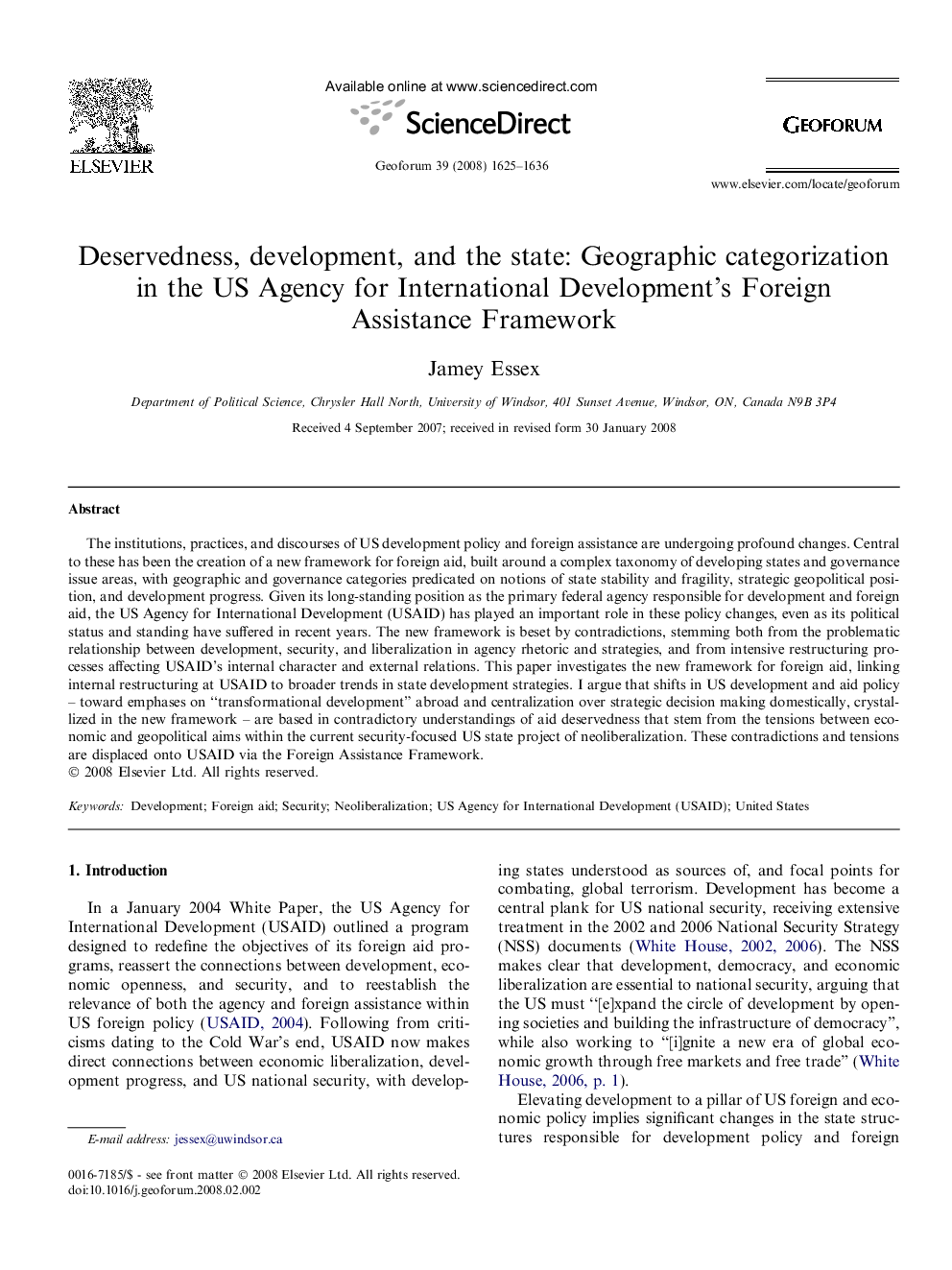| Article ID | Journal | Published Year | Pages | File Type |
|---|---|---|---|---|
| 5074926 | Geoforum | 2008 | 12 Pages |
The institutions, practices, and discourses of US development policy and foreign assistance are undergoing profound changes. Central to these has been the creation of a new framework for foreign aid, built around a complex taxonomy of developing states and governance issue areas, with geographic and governance categories predicated on notions of state stability and fragility, strategic geopolitical position, and development progress. Given its long-standing position as the primary federal agency responsible for development and foreign aid, the US Agency for International Development (USAID) has played an important role in these policy changes, even as its political status and standing have suffered in recent years. The new framework is beset by contradictions, stemming both from the problematic relationship between development, security, and liberalization in agency rhetoric and strategies, and from intensive restructuring processes affecting USAID's internal character and external relations. This paper investigates the new framework for foreign aid, linking internal restructuring at USAID to broader trends in state development strategies. I argue that shifts in US development and aid policy - toward emphases on “transformational development” abroad and centralization over strategic decision making domestically, crystallized in the new framework - are based in contradictory understandings of aid deservedness that stem from the tensions between economic and geopolitical aims within the current security-focused US state project of neoliberalization. These contradictions and tensions are displaced onto USAID via the Foreign Assistance Framework.
